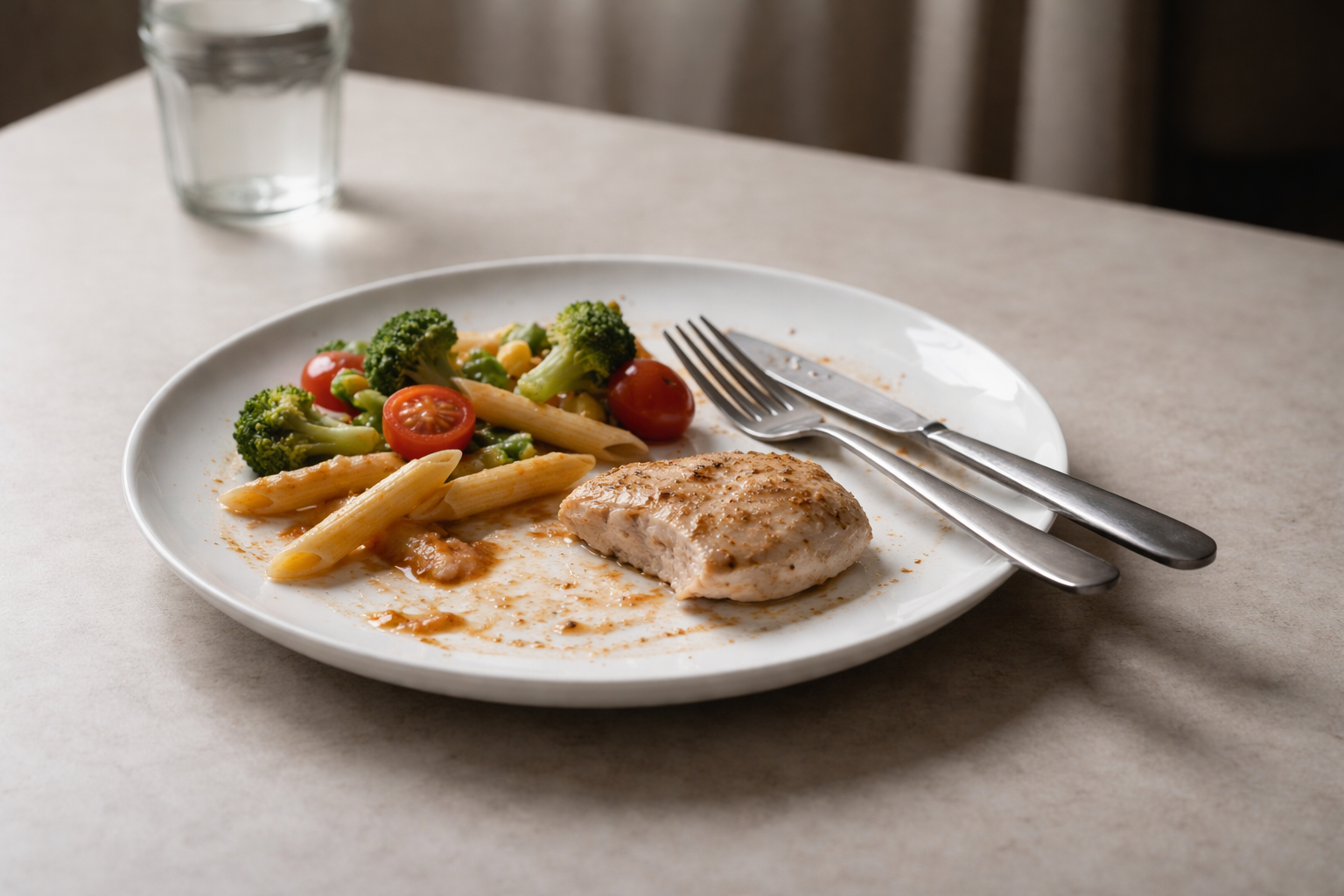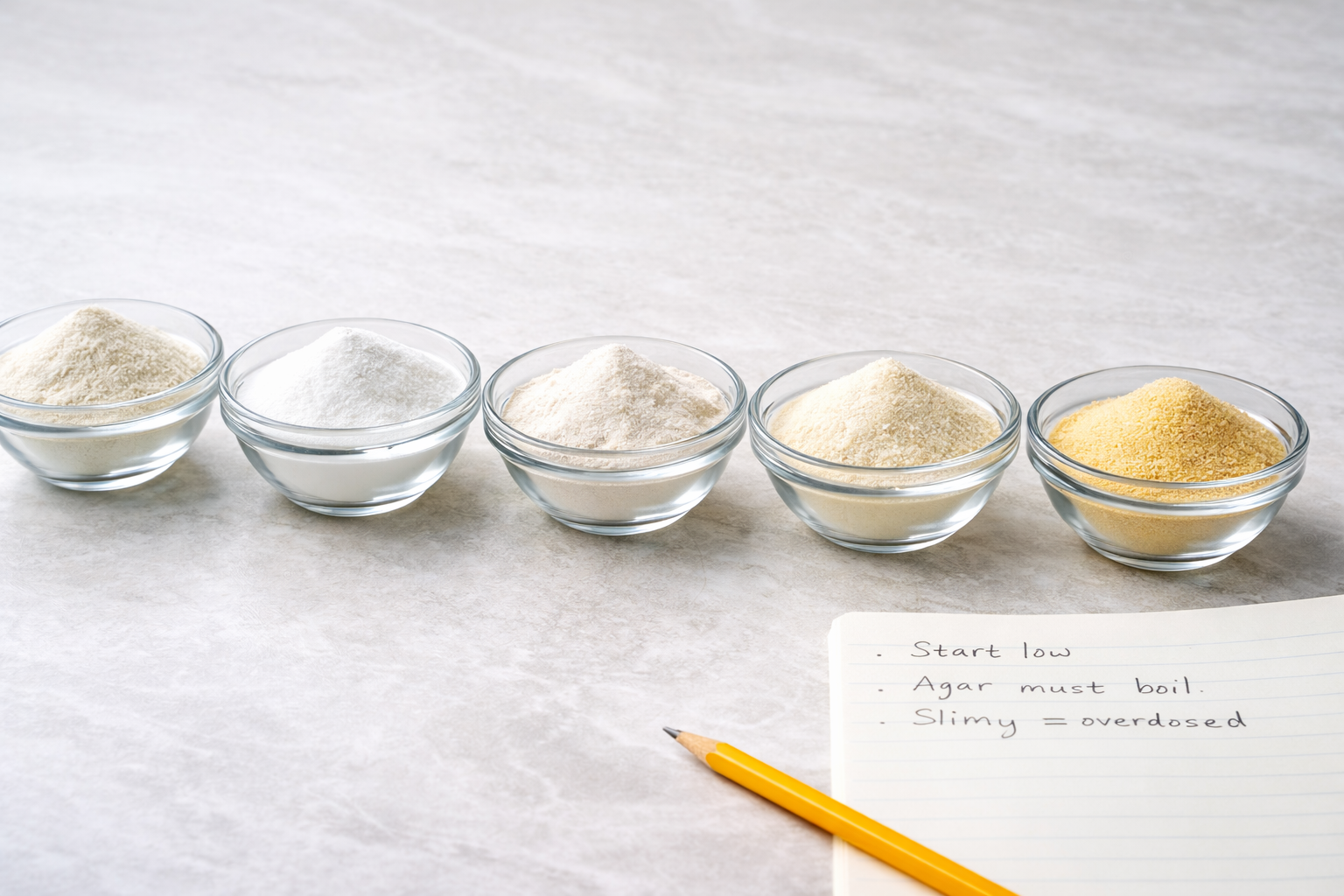Introduction
Gellan gum is a versatile hydrocolloid produced by bacterial fermentation. It exists in two primary forms: Low Acyl (LA) and High Acyl (HA). Low Acyl forms firm, brittle gels; High Acyl forms soft, elastic gels. This guide explains what gellan gum is, how it’s made, core culinary uses, benefits, and where to buy.
What is Gellan Gum?
Gellan gum is a polysaccharide produced by Sphingomonas elodea. It’s prized for clean, precise gelation and excellent stability across pH and temperature ranges. Low Acyl (LA) gellan creates firm, brittle, heat-stable gels, while High Acyl (HA) gellan yields soft, elastic, creamy gels.
How is Gellan Gum Made?
- Fermentation: A carbohydrate source is fermented by Sphingomonas elodea.
- Recovery: The gum is precipitated (often with alcohol) and separated from the broth.
- Drying: The recovered gum is dried into a stable form.
- Milling & Standardization: Ground to a fine powder and standardized for food applications.
Culinary Uses of Gellan Gum
- Beverages: Clarified fluid gels, pulp suspension, and protein-stable systems.
- Dairy & Alternatives: Set yogurts, puddings; creamy textures with HA gellan.
- Confectionery: Firm, cuttable gels (LA), or soft, chewy textures (HA).
- Sauces & Glazes: Precise viscosity and glossy, heat-stable finishes.
- Molecular Gastronomy: Fluid gels, sheets, noodles, and layered textures.
Benefits & Functional Properties
- Tailored Gelation: LA = firm/brittle; HA = soft/elastic.
- Thermal & pH Stability: Performs across a wide processing window.
- Clarity & Precision: Clean flavors and defined textures.
- Low Use Levels: Efficient gelling and stabilization.
- Plant-Based: Vegan, gluten-free, and widely approved for food use.
Where to Buy Gellan Gum
Cape Crystal Brands offers premium gellan gum and companion hydrocolloids for culinary, R&D, and production.
👉 Shop Gellan Gum Now
Frequently Asked Questions
Is gellan gum safe?
Yes. Gellan gum is recognized as safe by major food authorities and widely used globally.
What’s the difference between Low Acyl and High Acyl gellan?
Low Acyl gellan forms firm, brittle gels; High Acyl gellan forms soft, elastic gels with creamy mouthfeel.
Does gellan gum affect flavor?
No. It is neutral in taste and won’t alter flavors.
What are typical usage levels?
Commonly 0.05–0.5% depending on target texture and system (LA vs. HA, solids, pH, and ion content).
Where is gellan gum used?
Beverages, dairy and dairy alternatives, desserts, confectionery, sauces, and modernist applications.





